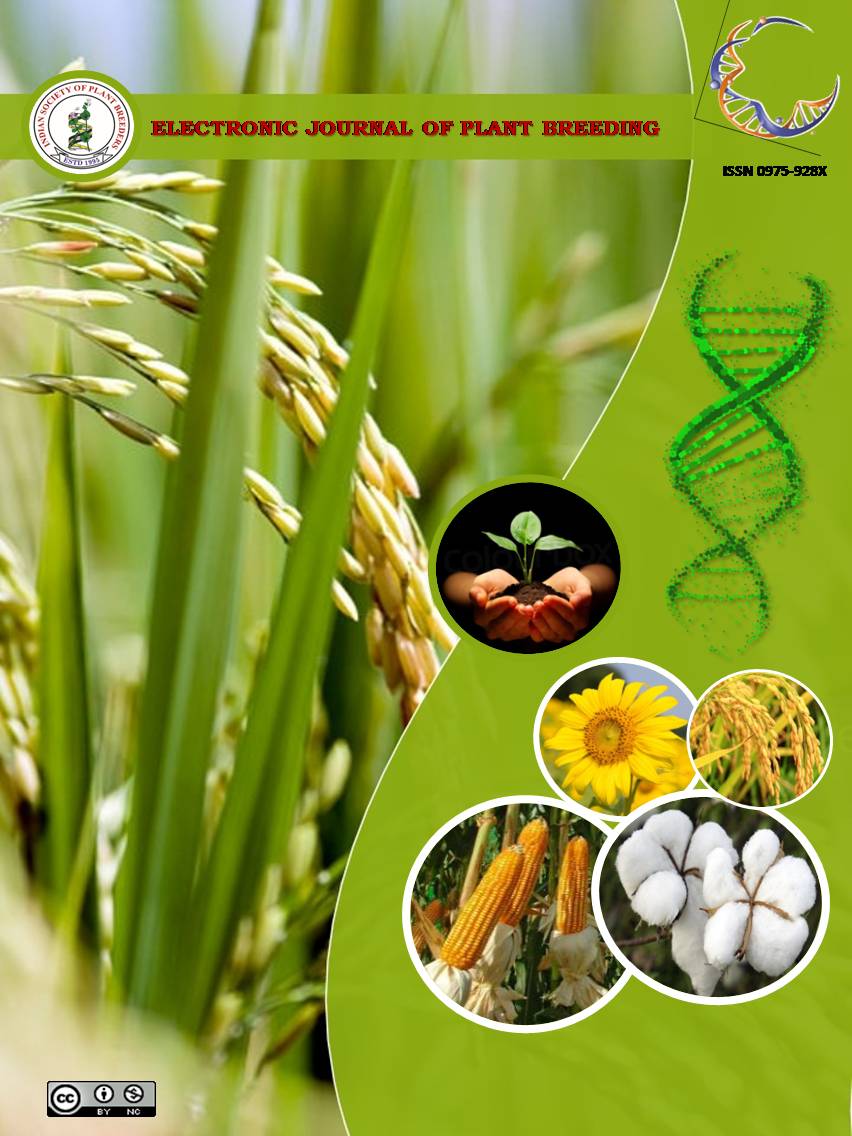Inheritance of resistance to rice weevil (Sitophilus oryzae L.) in bread wheat (Triticum aestivum L.)
Abstract
Losses of grain in storage due to insects are well-recognized problem. Infestation of store pest reduces quality of grain on one side and viability of seed on the other. Use of fumigants increases cost of the produce and makes environment unhealthy. Exploitation of available genetic variability for store pest resistance is very much essential to minimize the use of fumigants. Wheat, an important staple food, is also attacked by a number of store pest and rice weevil (Sitophilus oryzae L.) being the most destructive. In the present investigation, an attempt has been made to identify wheat genotypes possessing resistant to rice weevil. Crosses were attempted to generate F1, F2, BC1 and BC2 generations and genetics of resistance to rice weevil was studied. Test of allelism revealed that resistance to weevil infestation is controlled by two dominant genes and the genes interacted with each other in duplicate manner.

It is certified that:
- The corresponding author is fully responsible for any disputes arising due to the publication of his/her manuscript.
- The article has been seen by all the authors who are satisfied with its form and content.
- The sequence of names of authors in the by-line is as per their relative contribution to this experiment, giving due credit to all scientists who made notable contribution to it.
- All the authors fully understand that inclusion of any other co-authors or exclusion of any co-authors is not possible once the article has been submitted to the journal.
- The corresponding author takes full responsibility for this article.
- The address of the organization where the research was conducted is given.
- The article is exclusive for this journal, and the results reported here have not been sent (and will not be sent during its consideration by this journal) for publication in any other journal.
- Authors agree to abide by the objective comments of referees and do agree to modify the article into a short note as per the recommendation, for publication in the Electronic Journal of Plant Breeding.
- If published in Electronic Journal of Plant Breeding, the copyright of this article would vest with the Indian Society of Plant Breeders, who will have the right to enter into any agreement with any organization in India or abroad engaged in reprography, photocopying, storage and dissemination of information contained in it, and neither we nor our legal heirs will have any claims on royalty.


